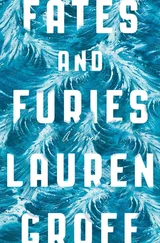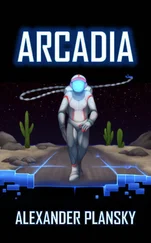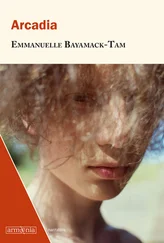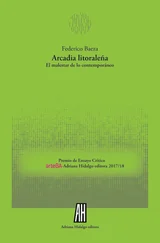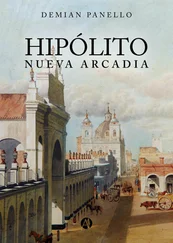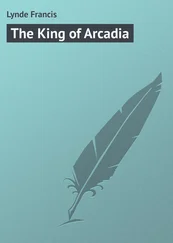I want my dad, says Leif; and his big boy’s face crumples and he begins to cry.
Astrid pulls him to her, pulls all of her children, Erik and Leif, froggy Helle, hyper Ike, to her, and says into their matching white-blond hair, Well, that’s another story, indeed.
In the morning, Bit runs to the stream trickling in the woods. Yellow jags of ice edge the water. Bit kneels on the ice and puts his head in the stream, and the cold is enough to rip the breath from him, a relief.
Handy sends a letter, express. Astrid calls a meeting in the Octagonal Barn, and they gather in the late afternoon to hear Hiero read it aloud. Handy says greetings to all his beautiful beatniks. He is devastated by the news, and feels profoundly for the Free People keeping the faith at the Homeplace. He urges them to remember that suffering is what tempers the steel in the human soul, and when one suffers in community, the community grows stronger.
Hiero’s voice shakes when he reads: Pain, when given its proper place in the human heart, can be a door that leads to a feeling of oneness with the Universe. This is a path to deeper empathy.
Soon enough, Handy tells them, they will all be together. Try to be strong and we will bear the impossible weight of our sorrow in communion. Namaste.
Namaste, they say, and the women cry, holding one another. The babies goggle at their mothers and pat their faces.
After one week, Maria returns from the hospital, her head and arms wrapped like gifts in white bandages. Ricky and she seem to be carrying one another wherever they walk.
Bit sits under the table as Marilyn and Hannah drink St.-John’s-wort tea. They talk about the oil embargo, about Marilyn’s webbed feet, about thalidomide babies, born with flippers. Bit thinks of a wee newborn flapping underwater, like the beaver that lived in the stream behind the Family Quonsets and gave them all giardia one spring.
He goes back to his book, the story of the fisherman and his wife. The women forget about him. They begin to murmur.
I don’t know how much longer I can handle it, Hannah says. This isn’t what I signed up for, this isn’t a better life, this isn’t anything but poverty and hard work and not enough money to buy the kids winter boots.
I know, says Marilyn.
Hannah’s voice goes muffled when she says, . want. . out . She makes a sound that doesn’t seem human. Bit watches her legs worriedly, afraid she is sick.
Marilyn’s voice, softer than ever. Hang in there. We move into Arcadia House in less than a month. We’ll all live together, and everything will be better. You can make it.
I can’t, Hannah says. Fucking Handy. .
You can, says Marilyn, and her voice sounds like a door closing, and Bit knows that there exist things even outspoken Hannah isn’t allowed to say.
A taste of Saucy Sally’s poppyseed cake, the way Leif can swing Bit by the legs so the world spins deliriously past, the feel of running on the last crust of snow when the others fall through, that softness at the end of a branch that is the whisper of a bud. He adds to the list in his head. Raspberry jam on just-baked bread. The smell of the pocket of Titus’s waxed coat, pipe tobacco and lint and cedar. The four blond heads of Handy’s kids around a letter. The feel of fresh plaster. He sits by his mother and comes up with these fragments and tries to beam them into her head. Once or twice, he is sure he succeeds. She sighs sweetly in her sleep when he remembers the smell of a newborn’s crown or the downy feel of her own soft cheek upon his.
The Kid Herd is at the stream. The footbridge is not safe: it wobbles, its ends dunked in the wild runoff. White suckers churn upstream, their many bluish bellies transformed into a single pulsing one. Bit stares down, the stick gone heavy in his hand. Toothwort bobs on the bank.
Do it! shouts Leif, who has turned into a dancing goblin. He is hysterical with violence.
Bit, calls Jincy over the roar, and Bit looks up at her. Her curls are wilder than usual. There has been a charcoal smear on her cheek for a week. It’s wrong to kill, she shouts, close to tears.
The others stand, a mass, uncertain, waiting to see what he will do. Helle has begun to wail, though her eyes bulge with anticipation. Bit looks at his friends. Cole and Dylan, side by side, make the same face Sweetie makes when one of the kids hurts another. Jincy covers her mouth with a hand.
He thinks of a fish body wriggling on the stick, of a mass of blood.
Bit grips the stick that Leif whittled with Abe’s pearl-handled blade. He pulls it behind his head and hurls it into the stream. It bounces back at him and smacks him above the eye. The pain is terrible, like swallowing a brick of ice. Leif and Erik and Ike and Fiona shriek and dance, Helle wails, Jincy says, No, no, no, no, no. Molly, who thinks she’s a horse, who has made them call her Secretariat since last summer, even though Secretariat is a boy, whinnies and throws her mane and stomps her foot. In fury, Bit grabs the stick and chucks it as hard as he can toward the bank, where it grazes Muffin’s knee.
Muffin’s face goes red behind her glasses, and she screams. She claws up the muddy bank and runs off through the forest, over the fields.
Now you’re in trouble, says Fiona, her voice humid with excitement. Her bangs are slicked with sweat and her forehead gleams. She runs off. The others follow, the boys whooping like Indians through the afternoon dapple. Helle stays for a second to scream IhateyouIhateyouIhateyouBitStone, then she, too, scurries off. Her round little body falls behind her brothers’, and she ruins a patch of early spring beauty flowers as she goes. She pumps her arms and tiny corncob legs to catch them but they move off without her, as ever.
Alone, Bit is seized with grief. He comes down tentatively to the edge of the brook and tries to leap to the shore, but his boot fills with water. His shocked foot inside the boot feels the way his stomach feels inside his body.
He crouches for a while on the side of the brook, watching the frantic push of fish. He sends out mute apologies, waits for the great King Fish to surface, its stern face leathery and terrible, to open its vast mouth and curse him. Or eat him. Or maybe, he thinks with a pulse, to send him off on his search to find the thing that will save his mother. He holds his breath until he feels faint and, when nothing happens, moves up the bank to sit among the fiddleheads, their bald skulls rearing shyly from the dirt. The wind blows cold from the top of the trees, brushing down, and the parched leaves chatter under it. In the hollows to the north of some trunks, he dips his fist into small pockets of snow.
He sits long enough for a squirrel to emerge and almost run over his foot. A hawk swoops over the stream and snatches at something and rises again as if riding a pendulum.
For a few breaths he forgets himself in the swim of nature around him. Its rhythm is so different from Bit’s human own, both more nervous and more patient. He sees a bug that is smaller than a period on a page. He sees the sky, bigger than all that’s in his head. An overwhelm from two directions, vast and tiny, together.
From behind him, footsteps. He hears them when they are still far away. They thunder the ground. He knows from his Grimm that it is probably a giant come to eat him, but he can’t find the energy to fight. Bit bends his head and waits for the great hand, the teeth. Instead, he smells something fleshy and feminine, blood and pus and sweat and rose soap. Astrid. She sits beside him and he waits for her to yell.
She doesn’t. She just sits. When he dares, he lifts his head to look at her. She studies her feet, unshod and luxuriating in the cold mud. She smiles down at him. I love spring mud in the toes, she says. Makes me think of home. Norway, you know.
Читать дальше
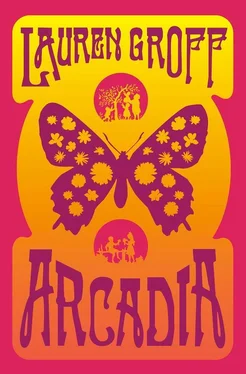
![Andrea Höst - In Arcadia [Touchstone - Extras]](/books/56405/andrea-host-in-arcadia-touchstone-extras-thumb.webp)

